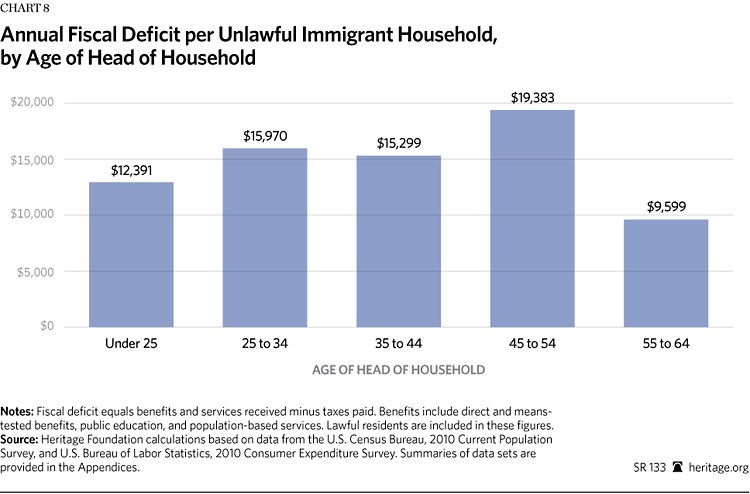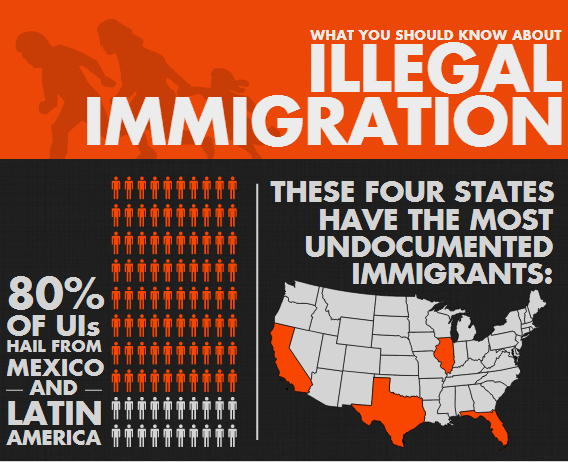Tonight, President Barack Obama will announce his unilateral executive action on immigration, widely expected to consist of the use of prosecutorial discretion to prevent the deportation of up to five million illegal immigrants already in the US.
Fittingly, the President will travel to Las Vegas for a photo opportunity to highlight his new directive at a local high school where Obama will pose with students affected by his announcement. The gamble he’s taking with the lame-duck period and the precedent it may set for executive power qualifies Obama as a high roller indeed.
Related: Obama’s Amnesty Plan—A Step to Non-Citizen Voting
Obama has long threatened to make this move in the wake of the failure to move the Senate bipartisan reform package in the Republican-controlled House in 2013. The failure of that package fell along the same battle lines of other attempts at compromise on immigration reform – verification on border security and the issue of providing continuing magnets for more illegal immigration.
In 2007, John McCain nearly had his presidential campaign utterly derailed by the collapse of a similar deal, which followed an attempt in the prior year to cull together a comprehensive, bipartisan reform effort. The impetus for the 2006 effort was the 2005 9/11 Commission report, which identified security issues at both the northern and southern borders as critical gaps in an age of terrorism along with a broken visa-control system.
Based on that history, the White House claim on Wednesday that “our immigration system has been broken for decades” is true enough. The problems have long been recognized across the political spectrum, even where the priority in addressing each has been under debate.
The broad strokes of systemic reform are already well known and conceded by both parties – verifiable border security, revamped and modernized management of entry visas, and normalization for a large percentage of those who have already been living in the US for a number of years. The differences remain in the order of those reforms, the definition of verifiable security, and the extent of normalization.
If those components are widely accepted (if not universally embraced), why are we still stuck in 2005? Mostly politics, and this stunt by Obama is a perfect example of it. For two years, Obama and his party had control of Congress, and for several of those 24 months, a filibuster-proof majority in the Senate.

A number of Republicans in both chambers would have supported a bipartisan immigration reform bill at that time, as a number of them do now. Obama had promised to make the issue one of his first priorities as President. Instead, Obama shifted to the deeply partisan fights over the stimulus bill (filled with empty promises of mythical “shovel-ready” jobs), Obamacare, and Dodd-Frank.
Related: Obama on Immigration—How He Could Foul It Up
Only after Republicans took control of the House did Obama return to immigration, and then only to score political points among Hispanic voters at the GOP’s expense. The White House has already made several unilateral changes to immigration policy, nibbling at the edges, while doing nothing to work across the aisle on a comprehensive solution.
The 2013 bill resulted from individual efforts of Senators, not the White House. Obama continued his unilateral tinkering with the law for his own political benefit. That backfired this summer after Obama made it clear that children would get special protection from deportation, which resulted in a border rush and created exactly the kind of incentives for illegal immigration that Republicans had predicted all along.
Now Obama plans a much broader kind of temporary amnesty by prosecutorial default, clearly as a way to grasp the narrative after his second midterm humiliation. This attempt to bypass Congress carries heavy risks, however, especially with its obvious political motivation.
A new NBC/Wall Street Journal poll shows that a near-majority 48 percent of Americans oppose the kind of unilateral action that Obama will take, with only 38 percent in favor. Even among fellow Democrats, executive action gets only 63 percent approval, and it drops to 37 percent among independents. The poll shows only narrow approval among Latino voters, the target demographic of this move, 43/37 – not even reaching a majority.
Related: Talking Past Each Other on Immigration Reform
This might have given a wiser executive some pause in normal circumstances. In the current environment, the potential for backfire is even higher. A series of recorded comments from Obamacare architect Jonathan Gruber contemptuously and repeatedly dismissed American voters as “stupid” while bragging that Democrats deliberately misled the public about the nature of the bill.
Gruber also claimed that Obama asked for his help in faking out voters, especially on the nature of the taxes being applied to taxpayers through their health insurance plans. Obama himself and leading Democrats like Nancy Pelosi claimed not to know who Gruber was, only to have videos of Obama, Pelosi, and others bragging about Gruber’s work on the bill.
Put simply, Obama’s credibility is near zero already. Now he’s claiming that Congress is too balky to work with him on immigration, when it’s been clear for years that Obama has had almost no interest in the issue except as a political sledgehammer. Will anyone believe that? Doubtful.
The political risk in the short run pales in comparison to the precedent it sets for executive power in the future – and the risks run highest for Obama’s own legislative centerpiece of Obamacare. The Washington Post asked the President this week what he’d say if a President Ted Cruz decided, for example, to use prosecutorial discretion to stop the tax enforcement of Obamacare.
Related: Obama to Move Ahead with Immigration Action Despite GOP Threats
That overlooks a bigger problem, though, even on this bill. Obama’s proposal would only apply while he’s President. If a Republican gets elected in 2016 without any agreement on immigration reform, he or she would reverse this policy – and make the same five million or more at risk for deportation.
Plus, those numbers would almost certainly swell with renewed efforts by immigrants to get across the border soon enough to take advantage of the consequence-free period of Obama’s unilateral temporary amnesty program. And that’s putting aside whether any of this withstands the inevitable legal challenge.
The correct method for dealing with laws in need of reform is dialogue with the opposition, especially after it has won a resounding victory and control over both chambers of Congress. There are still plenty of Republicans who want to get an honest reform that balances national security with humanitarian concerns while preserving the rule of law and the balance of power.
Rather than wait a few weeks to deal with his opposition, Obama instead chose to roll the dice on a temper tantrum, in the mistaken belief that the American voters his team assumes are stupid will confuse a tantrum with leadership.
In Vegas and in politics, it’s called doubling down – and it’s usually a bad idea in both.
Top Reads from The Fiscal Times:






